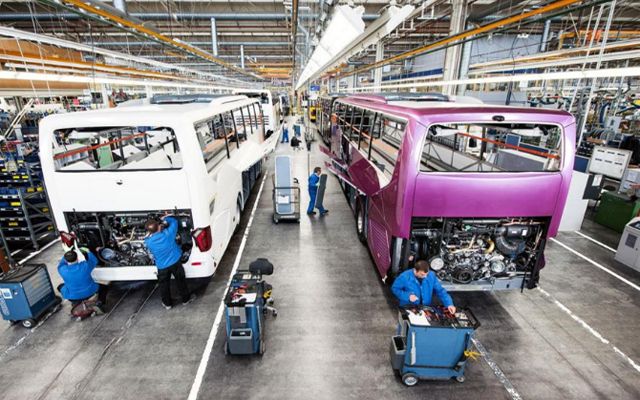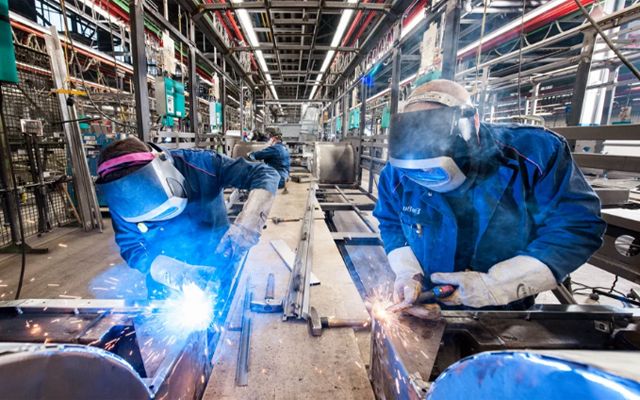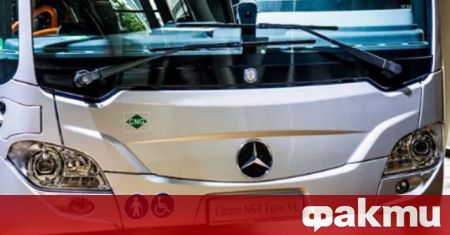Wanting to save money, Daimler Truck Corporation announced its intention to transfer part of its bus production outside of Germany. At the same time, the press service of EvoBus GmbH, the European division of Daimler Truck, expressed disagreement with this decision.
His representative replied that all other EvoBus production sites other than Mannheim and Neu-Ulm were out of the question: “We are the only bus manufacturer that does this directly in Germany. And it’s our stated goal to keep it that way going forward.”
The disagreements went beyond the corporation and showed a real problem not only in the region, but in the whole of Germany. It will therefore now be necessary to seek socially acceptable solutions for EvoBus employees with the help of the Daimler Truck Board of Directors.
The fate of several thousand Germans is also at stake, and this may just be the beginning
For example, the Mannheim plant employs 8,500 people and the plant is considered one of the largest employers in the city. In turn, 500 people work under the EvoBus banner in New Ulm, and for them the new information is like an open wound. According to the Daimler Truck union, employees at the Mannheim plant have been informed of plans to move production.
Need to cut costs
The corporation explains its difficult decision by the fact that production costs have recently increased significantly, and competition at the same time has intensified. And that’s not counting the well-known issues of the coronavirus pandemic, semiconductor shortages, disrupted supply chains, etc.
A Daimler Truck spokesman said last week that by 2030, the bus division’s annual costs should be reduced by at least 100 million euros. To achieve this goal, fewer vehicles should be produced in Germany and bus production should be established in the Czech Republic.
 –
–
“We intend to continue bus production in Germany as well as to continue operating at our sites in Mannheim and Neu-Ulm,” explained the corporation’s spokesperson. “They should continue to be ‘competency centers for city and tourist buses.’
Thomas Hall, Managing Director of Mannheim expressed his position: “The design and construction of bus bodies is the main task that our company performs. And we will not allow production to be transferred entirely abroad. We have no intention of surrendering without a fight, on the contrary, we are preparing for a tough discussion in defense of our convictions.”
Politicians are also opposed
Isabel Cademartori, a member of the German Social Democrats in the Bundestag, is horrified by the planned job cuts. During her visit to the factory, she emphasized that “manufacturing in Germany is of great importance and this unique characteristic cannot be abandoned, because if this happens, this example can be followed by others.”
Mannheim Landtag MPs Stefan Fulst-Blei and Boris Weiraum (SPD) also sharply criticized Daimler Truck’s plans. They said that the planned job cuts at local transport company EvoBus could be considered a “slap in the face of workers”: “The management board of EvoBus, together with the workers’ representatives, must develop an alternative to secure jobs.
 –
–
Melis Sekmen, a Green Bundestag member of the economic committee, said it was necessary to check whether the planned relocation of bus production would really reduce costs in the long term. According to Mr. Sekmen, the current state of the Mannheim plant brings prosperity and prospects to many people engaged in bus production.
The head of the CDU faction, Claudius Krantz, calls on the mayor of Mannheim, Peter Kurz, to negotiate as soon as possible with the board of directors of Daimler Truck to preserve the production of buses in the city. “The current crises in Europe show how important it is to have key industries at the local level. Until now, Daimler’s bus division has benefited from the “Made in Germany” stamp, and giving it up would be a big mistake.
Restructuring of the plant is possible
In turn, automotive industry expert Ferdinand Dudenshofer said in an interview with the Mannheimer Morgen correspondent that the Mannheim plant has the opportunity to be profiled for the production of cars with new types of drives. It, according to the specialist, could, for example, become a “Center for electric vehicles” and thus move away from the concepts of “classic bus production, but keep the jobs”.
EvoBus GmbH is the largest European subsidiary of Daimler Truck AG. Its structure includes brands such as Mercedes-Benz, Setra, OMNIplus and BusStore. The first two companies are engaged in the design and production of bus equipment. The OMNIplus brand deals with everything related to machine maintenance. BusStore, on the other hand, sells used buses.
Today, the company is a leading supplier of a full range of buses both on the European market and worldwide. As part of the Daimler Truck Buses division, we are not only the largest in Europe, but also one of the world’s leading bus manufacturers. In Germany, the share of EvoBus is at least 60%.
Place a rating:
☆
☆
☆
☆
☆
–
4.4
Assessment 4.4 from 19 voice.
–
– –

